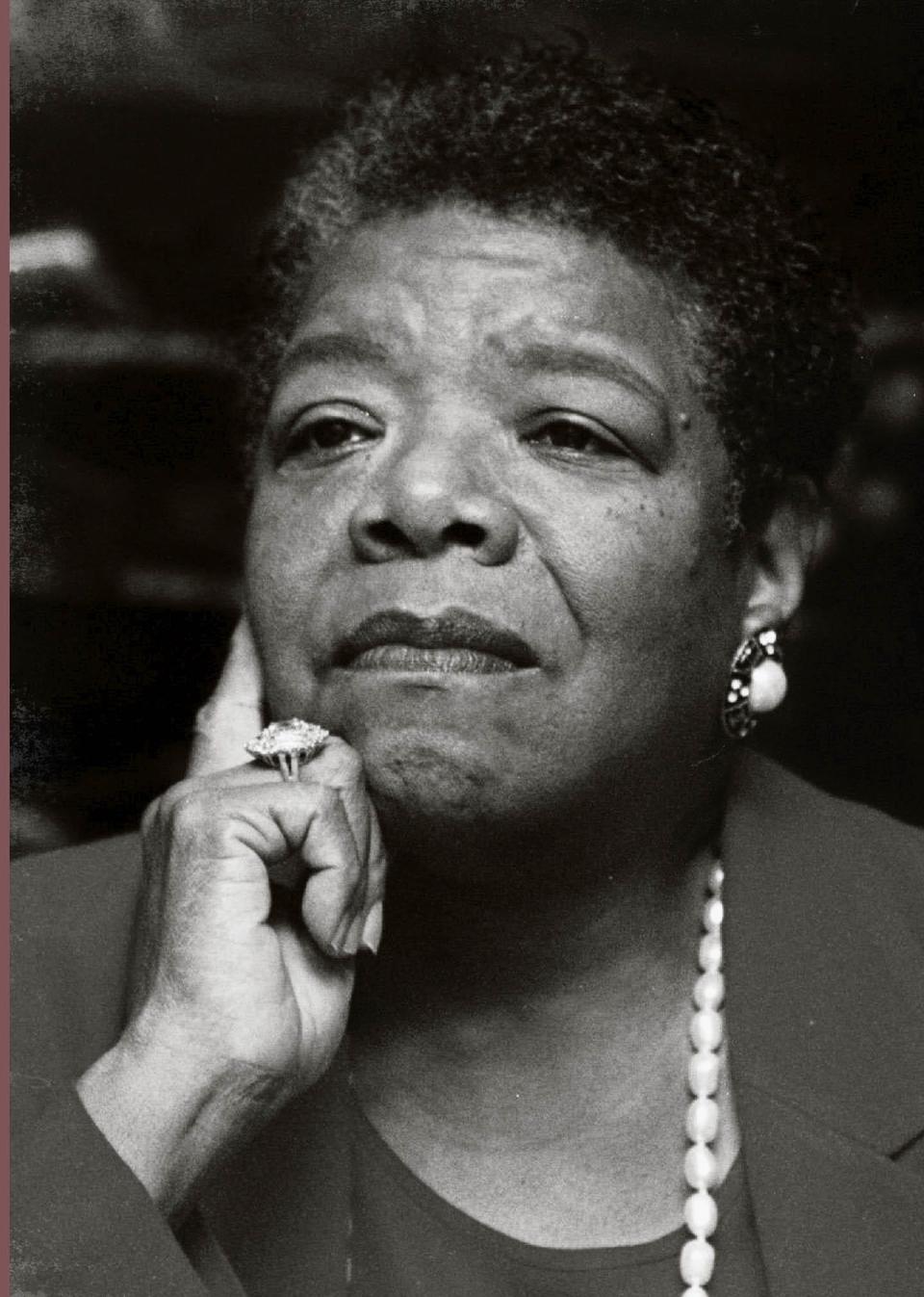How business leaders can prepare for work life after the pandemic: Read Maya Angelou
I study leadership and leaders for a living. Over the past 20 years, I have interviewed thousands of entrepreneurs, business leaders, coaches and military officers – all to better understand how effective, transformational leaders make decisions, build organizations and manage change.
The poet Maya Angelou does not fit the business school stereotype of a leader. She was not a military general, leading soldiers in battle. She did not run a Fortune 500 company, build a sports dynasty, launch a disruptive start-up or hold elected office.
That said, what I’ve learned from studying those who do fit the traditional leader stereotype is that Angelou’s ability to understand and translate the human condition is most often the attribute and ability that distinguishes a skilled executive from the few who truly epitomize a transformative leader.
I realize I'm not breaking news when I suggest that the "soft skills" of leadership are, for many, the most elusive. I am also aware that while business schools are quick to claim ownership of leadership as their academic domain, too often those institutions rebuff attempts to introduce topics like empathy, perspective taking and emotional intelligence into the curriculum.
USA TODAY's opinion newsletter: Get the best insights and analysis delivered to your inbox.
But now, as we emerge from the COVID-19 pandemic, a reckoning is coming. I truly believe there will be a significant cost to businesses, non-profits, governments and educational institutions associated with the longstanding marginalization of the soft skills of leadership.

Why? Because the COVID experience has reset what matters to this and future generations of employees in ways that maybe only a global pandemic could.
Employees gain leverage
The pandemic has shifted power and leverage from the employer to the employee. Millions of Americans have dropped out of the workforce since the start of the pandemic. Many will never return to an office environment and will consider only remote work opportunities. Others will come back to the office, but with new expectations for their employers about prioritizing family, well-being, flexibility, and social purpose and culture in the workplace.
These changed expectations will extend to those who lead – at all levels – the businesses and institutions that fuel the engine of economic and social prosperity in this county. Unfortunately, I fear that too many of those leaders are unprepared and ill-equipped to navigate this post-COVID new normal, where the soft skills of leadership will assume an unprecedented level of significance.
So, all this brings me back to Maya Angelou.
Angelou’s writings, when viewed through the lens of contemporary leadership theory, represent a masterclass in empathic and humane leadership. That is, she offers insights into the nuances of human connectedness and belonging that illustrate and illuminate – in ways that are prescriptive and actionable – the attributes and abilities that have historically distinguished competent managers and executives from once-in-a-generation leaders.
Here's one example from Angelou's writing that is uniquely informative of the most pressing challenges leaders will face navigating the new normal in the workplace: “At the end of the day people won't remember what you said or did, they will remember how you made them feel.”
In the post-COVID competitive landscape, the ability to attract and retain top-tier employees likely will be the factor that defines winners and losers. In this fight, the winners will be those who understand how and why the pandemic has reprioritized what matters most to both current and future employees.
Money won't fix problems
Gone are the days where an end-of-year bonus, by itself, is enough to communicate valued-status to your organization’s top performers. In a post-COVID world, the old trick of throwing money at the problem will not be enough.
But what will win the day?
In PwC’s recent study “What’s next for America’s workforce post-COVID-19?”, the authors characterize their findings by asserting that “the past year has prompted many employees to reconsider their values or make major changes in their personal lives, which is changing how they work and what they need to be productive.”
It’s likely that chief among those expectations is a leadership culture at work that is authentic and transparent, empathetic, and most of all committed to ensuring that employees feel and are truly valued and supported by leaders at all levels.
In other words, what they will remember at the end of a long workday – or when your competitor’s recruiting team comes knocking – is not the last thing you said or the last operational decision you made as a leader. Instead, what they will remember is how your action – or inaction – made them feel about themselves and their value and connectedness to the organization.
To that end the extent to which leaders are prepared and willing to routinely exercise the soft skills of leadership – and commit to a culture where employees are and feel valued and supported – will ultimately define who wins and who loses the war for human capital in the post-COVID workplace.
Mike Haynie is Syracuse University’s vice chancellor for Strategic Initiatives and Innovation and the Barnes Professor of Entrepreneurship at the university’s Whitman School of Management.
You can read diverse opinions from our Board of Contributors and other writers on the Opinion front page, on Twitter @usatodayopinion and in our daily Opinion newsletter. To respond to a column, submit a comment to letters@usatoday.com.
This article originally appeared on USA TODAY: How Maya Angelou can prepare leaders for post-pandemic workplace

